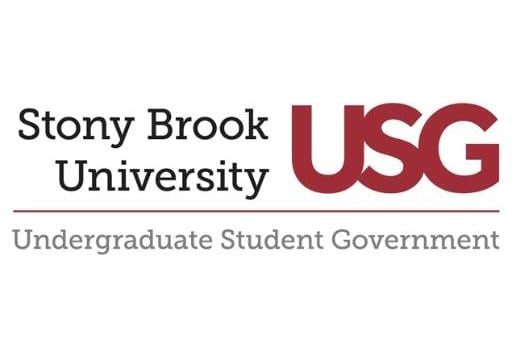Doğa Öner is a PhD student in the Department of Philosophy at Stony Brook. The views expressed in this letter are his alone.
President Maurie McInnis’ attitude toward the violence against Palestinian people has been a devastating source of disappointment for many at Stony Brook University, especially for Arab and Muslim students.
On Oct. 10, McInnis was quick to offer a statement about the attack on Israeli civilians, noting that she condemns “in the strongest terms, the acts of mass murder, the large-scale abductions and continued holding of hostages including children and the elderly, and other crimes committed.” She continued on to say that she “wish[es] for an end to the violence and suffering.”
When asked at the University Senate Meeting on Nov. 6 about this statement, McInnis made clear that in the context of her Oct. 10 statement, her response was directed at the violence against Israeli civilians. While this response was timely and accurate, it is impossible to ignore that the same feelings and care have been lacking in McInnis’ statements towards the suffering and violence against the Palestinian people.
Since Oct. 10, there has not been one statement by McInnis on the violence in occupied Palestine. In the weeks following her initial statement, the attacks by the Israeli state killed over 11,000 Palestinians, over 4,000 of whom are children. Also, the Israeli state has committed numerous war crimes with the explicit support of the United States and other Western governments, including violations of the 1949 Geneva Convention and the Rome Statute of the International Criminal Court.
The list includes but is not limited to: “Deliberately inflicting on a group conditions of life calculated to bring about its physical destruction in whole or in part;” collective punishment; using starvation as a weapon against civilians; attacks on “buildings dedicated to religion, education, art, science or charitable purposes, historic monuments, hospitals and places where the sick and wounded are collected, provided they are not military objective;” “[e]mploying asphyxiating, poisonous or other gas[s]es, and all analogous liquids, materials or devices;” and “intentionally directing attacks against personnel, installations, material, units or vehicles involved in a humanitarian assistance or peacekeeping mission in accordance with the Charter of the United Nations, as long as they are entitled to the protection given to civilians or civilian objects under the international law of armed conflict.”
On Oct. 30, +972 published Israel’s official plans that outline the displacement of the Palestinian people from Gaza; the document was dated for Oct. 13. It was on Oct. 14 that U.N. officials warned of ethnic cleansing in Gaza, and following Israel’s ground invasion, now tens of thousands had to flee the area on foot, prompting even the U.S. to announce that it does not support forced relocation. Since Israel’s attacks, according to the United Nations Relief and Works Agency, more than 1.6 million Palestinians have been displaced.
The Center for Constitutional Rights describes the strategic and criminal attacks on the Palestinian people as Israel’s attempt “to commit, if not actively committing, the crime of genocide in the occupied Palestinian territory, and specifically against the Palestinian people in the Gaza Strip.”
Additionally, Israeli Holocaust scholar Raz Segal called the attack “a textbook case of genocide.” In a recent letter, “an international community of scholars with globally recognised criminological expertise in the area of state crime” note that “Israel’s actions in Gaza and historic actions against the Palestinian people fit both legal and criminological definitions” of genocide — more specifically, the “annihilation phase of genocide.” On Nov. 16, U.N. experts called for a prevention of “genocide against the Palestinian people.” They repeated their past position that “intentional starvation amounts to a war crime” and emphasized that there is “genocide in the making,” particularly in Gaza.
I asked McInnis during the University Senate Meeting mentioned above whether her condemnation of crimes also includes any of the crimes by the Israeli state. She responded that her role is not to make continuous updates on the ongoing conflict and underscored a renewed emphasis on the care and value of civilian life, whether Israeli or Palestinian. She did not extend her condemnation to the crimes wherein the victims are Palestinians and the perpetrator is the Israeli state.
McInnis made two statements on Oct. 9 and Oct. 10 in response to “news reports from Israel and Gaza the past several days” and “the impact of the terrorist attack on Israel,” respectively. In both of these statements, the only direct mention of the Palestinian people is in the following sentence from the Oct. 10 statement: “Stony Brook is a large and diverse institution, and members of our community have roots in both the Israeli and Palestinian communities.”
The closest McInnis came to showing sympathy publicly and explicitly towards Palestinian people was in her following vague point: “I share their [Israeli and Palestinian communities’] concern for the welfare of both communities and wish for an end to the violence and suffering.” The erasure of Palestine is so clear that McInnis notes the upcoming times will be difficult for those in our community, “who have close ties to Israel and elsewhere in the region.” Where, though, is “elsewhere in the region?” Ironically, in McInnis’ statements, it is the Palestinians who are a people without land.
The disappointment towards President McInnis’ response led to different reactions in our community. An open letter signed by dozens of faculty members, graduate students and alumni states, “We write this because the official statements offered by President Maurie McInnis correctly condemned the terror caused by Hamas, but ignored the terror caused by the government of Israel.” The letter urges that this disservice to our community mirrors the silence regarding Palestinian self-determination.
Additionally, the Muslim Student Association (MSA) organized one of the most highly-attended protests that Stony Brook has seen in years in support of Palestine, at the end of which protesters directly asked McInnis to condemn Israel’s crimes. MSA also wrote an email to McInnis in which they noted “It was with considerable disappointment that we read your email concerning the events in the Middle East. Your email expressly communicated support for one side of a political event that is not only a contentious one but one with deep-rooted implications for an entire, core demographic of the school.” They further noted that McInnis’ attitude risks exacerbating anti-Arab and anti-Muslim sentiments.
In her private response, McInnis mourned the “deaths of innocent victims, both Israeli and Palestinian,” expressing concern for all in harm’s way, and for the “humanitarian tragedy” underway. However, instead of directly answering MSA’s request to correct her oversight in a public statement, McInnis instead recommended MSA to meet with University officials such as the Dean of Students, the Assistant Chief Diversity Officer and officials in Student Affairs and the Interfaith Center for support. Such avoidance of responsibility and disregard for an organization that forms the basis of Muslim students on campus only illustrates further McInnis’ unequal treatment of Palestinian suffering, and the refusal to make equally clear and direct stance in acknowledging Palestinian death and its cause.
The refusal of McInnis to acknowledge Israel’s war crimes even in the face of their explicit naming during the Nov. 6 University Senate Meeting takes her silence only further. Noting that “there can be no justification for the horrific acts that have taken place in Israel,” while only offering sadness on the tragedy of Palestinian death replicates the overarching denial of responsibility for Palestinian death across Western media and officials — a discourse that serves to further crimes against Palestinian people.
In a moment when Palestinian death is called into doubt, justified or conveyed as necessary or even a good thing, refusal to acknowledge the perpetrators of crimes against the Palestinian people hides the responsibility of the criminal Israeli state. It is not even correct to say that in McInnis’ approach there is an ambiguous or unidentified actor causing Palestinian death; there is rather a total absence of an actor, a complete invisibility of the perpetrators who do not even make it to the conversation and the world that’s constructed. McInnis’ is a world in which Palestinian death is hardly present, and when it is, the criminals who massacre the Palestinian people can never appear. It’s a world in which Palestinians are expected to die — in her own words, where she has been “very much concerned about what we expected were going to be escalations in the loss of civilian life” — but one in which we never talk about how they die.
Hence, her silence toward and refusal to acknowledge the crimes against the Palestinian people is not something to be taken lightly. It is a removal of the criminals from the conversation in the face of the impossibility to recognize the horrors that Palestinian people are subjected to. This removal makes it so that these crimes are not taken as crimes but ambiguous, tragic events analogous to a natural disaster. Such attitudes fortify the conditions in which criminals evade facing the consequences of their actions.
One of McInnis’ excuses for refusing to acknowledge Israel’s crimes is that it is not her job to update the school on the ongoing conflict. However, this serves only as a reminder of her trivialization of Palestinian death and suffering. This describes the attack on Israel as a legitimate reason to make not one, but two statements — neither of which have clear condemnations of crimes of the Israeli state nor a direct mention of Palestinian death — while positing the ensuing deaths of more than 11,000 Palestinians and crimes of the Israeli state as events that are unworthy to make a clear stance against. Ultimately, it disregards Palestinian death as noteworthy to talk and care about, or sympathize with, and posits the crimes against Palestinian people as non-existent.
Another point made by McInnis during her address on Nov. 6 was that she and the school have been subject to pressure from all sides to make statements, and that it is not possible to take a stance without creating an inflammatory response. Nevertheless, again, McInnis saw no problem in making a timely statement condemning the attacks against Israel and taking such a stance at the beginning of the conflict. The problem with making a statement seems to arise when what’s in question is Palestinian death and crimes of the Israeli state. Furthermore, the continuing silence against these crimes itself already constitutes a stance.
Additionally, we know from the war in Ukraine that McInnis is not alien to taking sides or making her stances clear on important global matters. At the time, she wrote, “We are horrified daily by the brutal atrocities committed by the Russian military in Ukraine.” In just one month, though, the Israeli state killed more Palestinian civilians than the total civilian death toll in Ukraine since the beginning of the war. What is McInnis’ reason for not showing the same condemnation of military atrocities in this situation? This example shows that it’s not the case that McInnis refuses in principle to condemn military atrocities committed in the world. Rather, there is a special exception and refusal to do the same when the victims are Palestinians and the perpetrator is the Israeli state.
As long as McInnis maintains her silence, both she and Stony Brook remain participants of conditions that allow the ongoing genocide against the Palestinian people. Against the gravity of this accusation one can ask whether then one should expect our president to make statements against every atrocity in the world, and if not, whether this silence similarly makes Stony Brook contribute to them. While I agree that it’s not realistic to expect the University in its current form to undertake such statement-making practices for every atrocity in the world, there are at least two reasons that make this case different. The first is the special support and entanglement of the U.S. and New York State (NYS) in the ongoing genocide, not only in terms of material support but in international rallying of other states and public debates in support of Israel. As leaders of public education in NYS, this places Stony Brook University and McInnis to higher moral standards in the approach to the crimes in question.
The second reason is the fact that it was McInnis who initiated a conversation on the conflict and placed herself and Stony Brook in a certain stance towards the events in the conflict. After the initial statement, if there was not already, Stony Brook and McInnis are in a relationship of responsibility towards the ongoing conflict. McInins approached the topic as an object of discussion and interest in our official standing. There can no longer be any question of ignorance or lack of information. Rather, we are in the position to suspect an intentional silence, as evidenced also by the comparison with the Ukraine war.
Not only this, the statements made and attitudes taken so far already actively contribute to the totality of discourses, practices and structures that make possible the continuation of the horrors that Palestinian people are facing, in the manner described above. Thus, there is also no longer the question of an uninvolved actor. Again, the current stance is not a neutral one but already has a relationship to the world of meanings and descriptions that construct Palestinians as people who die tragically but without any image of the perpetrator.
As masses around the world, including the Western public, are building an unprecedented support of Palestine, the blindness of our institutions become unacceptable. The decision is now on McInnis to either go down in history as an apt maneuverer of this difficult period through nebulous statements which remain silent on the genocide of Palestinian people, or as someone who could really apply standards that she herself sets against all the crimes committed — regardless of who the victim and perpetrator is. She must prove Palestinian people are equal human beings in her eyes, crimes against whom call for recognition and condemnation in the same way as those against other peoples.


















Alanna P. McCabe • Nov 27, 2023 at 10:25 pm
Thank you so much Doğa for writing this and articulating how many of us students are feeling. I am a graduate student in the School of Social Welfare at Stony Brook and I was deeply disturbed by McInnis’ glaringly biased statements. After reading her statements, I felt ashamed to be a student of an institution where the administration has demonstrated such cowardice and prejudice. As the horror unfolds in Gaza, I see how deeply Islamophobic Western institutions are by how they’ve responded—or their silence. Particularly, shockingly, institutions of higher education. McInnis’ statements offend, not only the students directly impacted, but all students who believe in justice, intellectual integrity and the objective of higher education.
Susan Shimon • Nov 20, 2023 at 1:59 pm
Hamas is a terrorist organization that has complete control over Gaza. Hamas terrorizes their own people and uses them as human shields, this is documented by videos that they themselves produce. They indoctrinate children to hate & kill the Jews. How would you expect anyone to issue you an apology when Hamas murdered, butchered beheaded and mutilated innocent people many of whom were not even Jewish, The Filipino home health aide was murdered, there were many other nationalities that were at the music festival that were murdered, raped or taken hostage, you expect an apology for this? Israel is the only democracy in the entire Middle East, do you dispute that? Do you know that Israel treats sick Gazans in their hospitals, one of the kidnapped women used to meet them at the border & transport them to hospitals in Israel, very inhumane right. Get your facts straight.. You know what happens to Queers in Gaza, oh right, good by to your head, it’s documented. If you are the future thoughts of our great US democracy we are in big trouble. God bless Israel and all the people that live there.
Reba • Nov 25, 2023 at 11:41 pm
You’re literally blatantly lying LOLLL. Also what about queers in Palestine? Stop pinkwashing and excusing genocide. Google is free, research before speaking. You’re supporting fascism, racism, and murder when you stand for Israel.
Mitchel Cohen • Nov 19, 2023 at 10:30 pm
Thank you for this letter! We Jews have a special resposibility for condemning the horrors the Israeli state is committing, especially since it is doing so in the name of “all Jews, everywhere”. At least, that’s my belief, and so I’ve been attending many of the protests against Israel’s crimes against humanity.
I have filed a number of reports from them for WBAI/Pacifica radio.
I first wrote about Zionism in Statesman in 1980 when I was an undergrad at Stony Brook. I wrote those columns along with graduate student Ben Joseph, who was an Israeli citizen and appalled at what Israel was doing. Note: We heard the same pathetic counter-arguments back then, as well.
If you’d like to listen to those reports, please drop me a line. I tried to link to them but Statesman’s rules-for-Comments doesn’t allow links to be included.
I wanted to weigh in here in appreciation of Doğa Öner’s letter. I still bump into many of us 1960s radicals at the protests! Please know that many former students at Stony Brook are still carrying forward the fight for Palestinian freedom (and freedom for all), one generation to another — a struggle we’re privileged to engage in for our entire lives.
MItchel Cohen
Red Balloon Collective
AH • Nov 18, 2023 at 8:15 pm
Thank you so much for this beautifully written letter. It has been absolutely awful for students and faculty alike to witness the lack of empathy for the Palestinian people as evidenced by SBU’s complete silence, while we watch, in real time, the murder of thousands of children and other civilians. The response from McInnis, which centered and showed concern only for Israeli lives but refuses to show any acknowledgment of Isreal’s crimes has been echoed throughout the various schools and departments at the University. This response has been a great moral failing for McInnis personally and the University as a whole.
eleanor • Nov 21, 2023 at 10:53 am
don’t palestinians work in Israel, when I was there I witnessed them enjoying themselves at restaurants, owning businesses etc. they didn’t look oppressed to me. They walked around enjoyed freedoms etc. Don’t see any one taking in and helping them.
CJ • Nov 17, 2023 at 6:59 pm
Good article. The President needs to issue an apology and full throated support for students who are reeling from Israel’s occupation and brutal campaign against civilians in Gaza. It truly is a humanitarian crisis and we ought to expect more moral leadership from our President. And, after all, she had no problem getting involved on the side of Israel as a human rights issue, so she put herself and the university in the middle of a very deeply troubled moral crisis.
PK • Nov 16, 2023 at 9:17 pm
You are correct that war crimes are being committed but you’re confused regarding the offending party. Hamas invaded Israel on October 7th, butchered innocent civilians, and kidnapped infants and children as hostages. Hamas retreated to Gaza, which is not “occupied Palestine”. It should have been part of the State of Palestine after Israel unilaterally pulled out of Gaza in 2005 and no longer occupied it. Once Hamas took control after a brief and bloody civil war with Fatah, Israel closed its borders with Gaza to protect itself from an organization pledged to destroy it. Rather than build a functioning country, however, Hamas chose to turn the entire strip into a terrorist training camp hiding weapons and tunnels and rocket launchers in civilian neighborhoods, hospitals and schools. And keep in mind that their Arab brethren in Egypt also closed their border with Gaza. By invading Israel and hiding among civilians, it is Hamas that is committing war crimes. It is Hamas that is hiding rockets under children’s beds. It is Hamas who is using hospitals as military garrisons. It is Israelis who are warning Gazans to retreat southward, bringing incubators into hospitals, and using surgical strikes to attack Hamas and minimize civilian casualties. This could all end tomorrow if Hamas surrendered the hostages and laid down its arms. The miserable conditions in Gaza are a direct result of Hamas’ actions. None of this would have happened if not for October 7th. And let’s not forget you are defending an organization that treats women as chattel, outlaws freedom of the press, and would happily kill anyone who is LGBTQ. Israelis just want to live in peace in their ancient homeland, a presence that traces back before Islam or Christianity even existed. If Hamas lays down its weapons there will be peace. If Israelis lay down their weapons there will be no Jews in the Middle East. There will be a real genocide. The loss of innocent lives in Gaza is regrettable and very sad. The barbarians of Hamas, however, don’t care. Those deaths are just ammunition for the media war.
John • Nov 17, 2023 at 2:22 pm
So if you step on my foot and I demolish your entire house, I can say, well you stepped on my foot?
Why would anyone trust Israel to say there would be peace? (Not that they are saying that, that’s just you.) There is no Hamas in the West Bank, and yet Palestinians are killed by settlers and harassed by police. Is that the kind of peace you’re talking about?
susan shimon • Nov 20, 2023 at 7:39 pm
yes
Jake • Nov 17, 2023 at 4:21 pm
Treating Arabs as monolith: check
Ignoring Israel’s control of water and electricity to Gaza: check
Spreading debunked IDF propaganda: check
Ignoring 75 years of settler colonialism: check
Go away colonizer. Zionists have no place on our campus or in any community really.
susan shimon • Nov 20, 2023 at 7:44 pm
Are you kidding, you go away you anti semite. How dare you make such a statement, you need to be expelled. It’s sad that you are allowed to make a statement like this, get educated, you don’t know what you are talking about. Colonizer, Zionist have no place on our campus? Israel is the only democracy in the entire Middle East, go live in any Muslim country and see what happens to you, there are no democracies. You have no place on this campus.